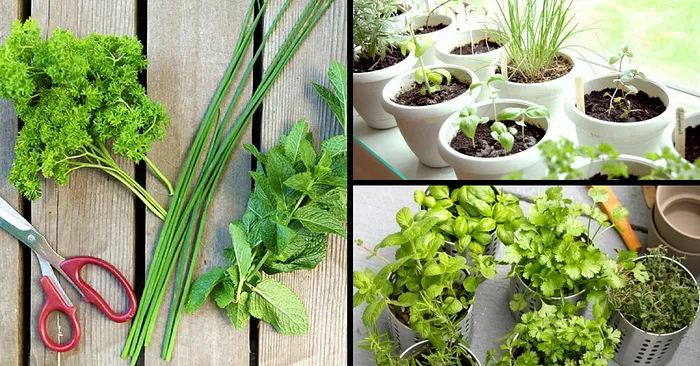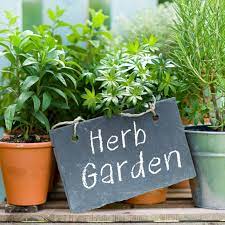Creating And Cultivating Your Own Garden

Introduction: Having a herb garden is a delightful and rewarding way to bring fresh flavors and aromatic scents into your life. Whether you have a spacious backyard or a small balcony, you can create a thriving herb garden that will provide you with an abundant supply of herbs for culinary delights, natural remedies, or simply to enjoy their beauty.
In this guide, we will explore the benefits of having an herb garden and provide you with practical tips on how to start and maintain one of your own.


Benefits of an Herb Garden:

- Freshness and Flavor: There is nothing quite like the taste and aroma of freshly harvested herbs in your cooking. The flavors of homegrown herbs are more vibrant and intense compared to store-bought varieties that may have been sitting on shelves for days or weeks.
- Cost-Effective: Growing your own herbs can be a cost-effective alternative to buying them from the store. A small investment in seeds or seedlings can provide you with a continuous supply of herbs for an extended period.
- Health and Wellness: Many herbs offer medicinal properties and can be used in natural remedies. Growing your own herbs gives you the opportunity to harness their therapeutic benefits and incorporate them into your daily life.
- Gardening Experience: Herb gardening is a fantastic way to develop your gardening skills, regardless of your level of experience. It’s a great starting point for beginners and can be expanded to include other plants as your confidence grows.
Getting Started:
- Choose the Right Location: Most herbs thrive in sunny spots, so select a location that receives at least six hours of sunlight per day. If you have limited space, consider using containers or vertical gardening techniques to make the most of the available area.
- Select Your Herbs: Start with a few herbs that you frequently use in your cooking or have an interest in exploring. Popular choices include basil, rosemary, thyme, mint, parsley, and chives. Consider the specific growing requirements of each herb, such as water and soil preferences, to ensure compatibility.
- Prepare the Soil: Herbs generally prefer well-draining soil with a slightly acidic to neutral pH. Amend the soil with organic matter like compost or aged manure to improve its fertility and structure.
- Planting and Maintenance: Follow the instructions on the seed packets or transplant your seedlings into the prepared soil. Water the herbs appropriately, allowing the soil to dry slightly between waterings. Regularly remove any weeds and prune the herbs to encourage bushier growth.
- Harvesting and Storage: Harvest herbs when they are at their peak flavor, usually in the morning after the dew has dried. Cut the herbs just above a leaf node to promote new growth. Utilize the harvested herbs fresh, dry them for later use, or freeze them in ice cube trays with olive oil.
Conclusion:
A home herb garden is a fulfilling endeavor that offers numerous benefits, from enhanced culinary experiences to promoting wellness and providing a therapeutic gardening outlet. By carefully selecting herbs, providing proper care, and harvesting them at the right time, you can enjoy a bountiful supply of fresh herbs throughout the year. So, roll up your sleeves, gather your gardening tools, and embark on a journey of flavors and fragrances with your very own herb garden.

